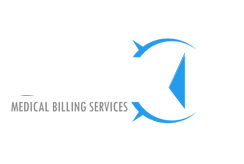The Growing Threat of Post-Procedure Claw backs: Navigating the New Reality for ASCs
Ambulatory Surgery Centers (ASCs) are now facing a new challenge: post-procedure claw backs

Ambulatory Surgery Centers (ASCs) are now facing a new challenge: post-procedure claw backs. Health plans are scrutinizing even pre-approved claims post-procedure, re-evaluating them, and often seeking to recover funds. This disruptive tactic undermines the financial stability of healthcare providers by questioning the necessity of procedures after they’ve been performed.
The impact on ASCs is significant, with many forced to allocate substantial resources to manage these retroactive challenges. Some have built entire departments to handle preauthorization and post-surgery payer requests, costing hundreds of thousands of dollars annually. This burden is especially heavy for independent organizations operating with tighter margins.
At Compass Medical Billing Services, we have developed robust strategies to mitigate these challenges. "Our physicians feel the pain in the clinic, but they haven't felt it in their wallets yet because our departments are really, really good at making sure we get the money that's theirs," said Yvonne Deacon, CEO of Compass Medical Billing Services. "We have a lot of robust processes ahead of time where the doctors know one week before surgery exactly what codes are approved. We receive an email if they do anything differently in the case and we conduct daily day-of-surgery audits. They must tell us immediately or face a penalty inside their own group. We take both sides of it, not only to educate our providers but then go directly after the payers."
The practice of post-procedure claw backs raises several critical questions:
- Is this practice ethically justifiable? Should insurers reverse decisions after initially approving a procedure?
- What are the implications for patient care? Could the fear of claw backs discourage providers from offering necessary treatments?
- How can ASCs protect themselves? What strategies can ASCs use to mitigate the risk of unfair penalties?
Addressing these issues requires advocacy for regulations that protect providers from arbitrary post-procedure denials. ASCs must also invest in robust documentation and compliance strategies, including meticulous record-keeping and thorough justification of medical necessity.
In conclusion, post-procedure claw backs represent a significant shift in the dynamics between healthcare providers and insurers. ASCs must adapt by enhancing their administrative capabilities and advocating for fairer practices. As this issue continues to unfold, the healthcare community must stay informed, share insights, and collaborate on solutions to safeguard financial viability and ensure high-quality patient care.
We invite you to share your experiences and strategies in handling post-procedure payer claw backs. How do you navigate this complex and challenging aspect of healthcare reimbursement?








